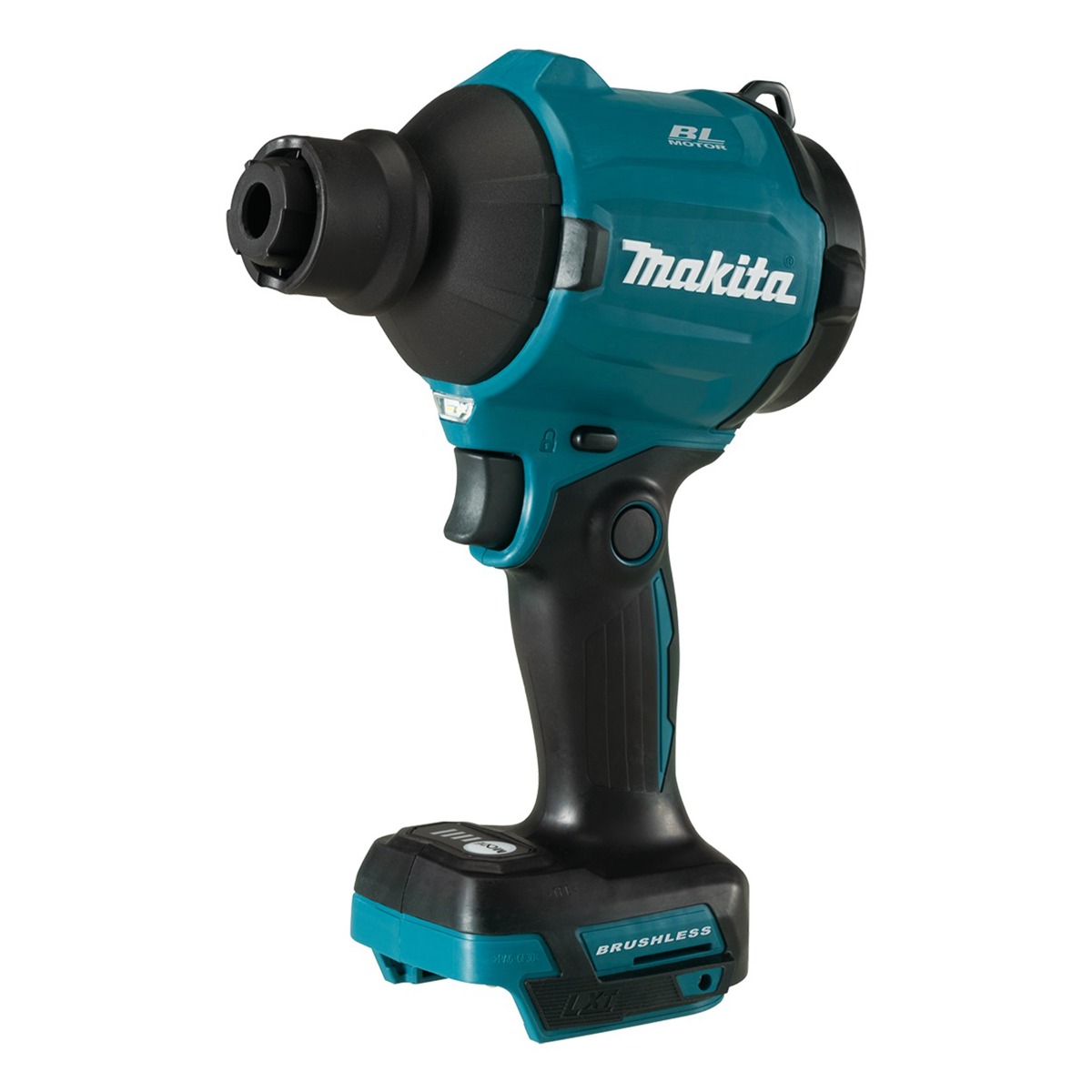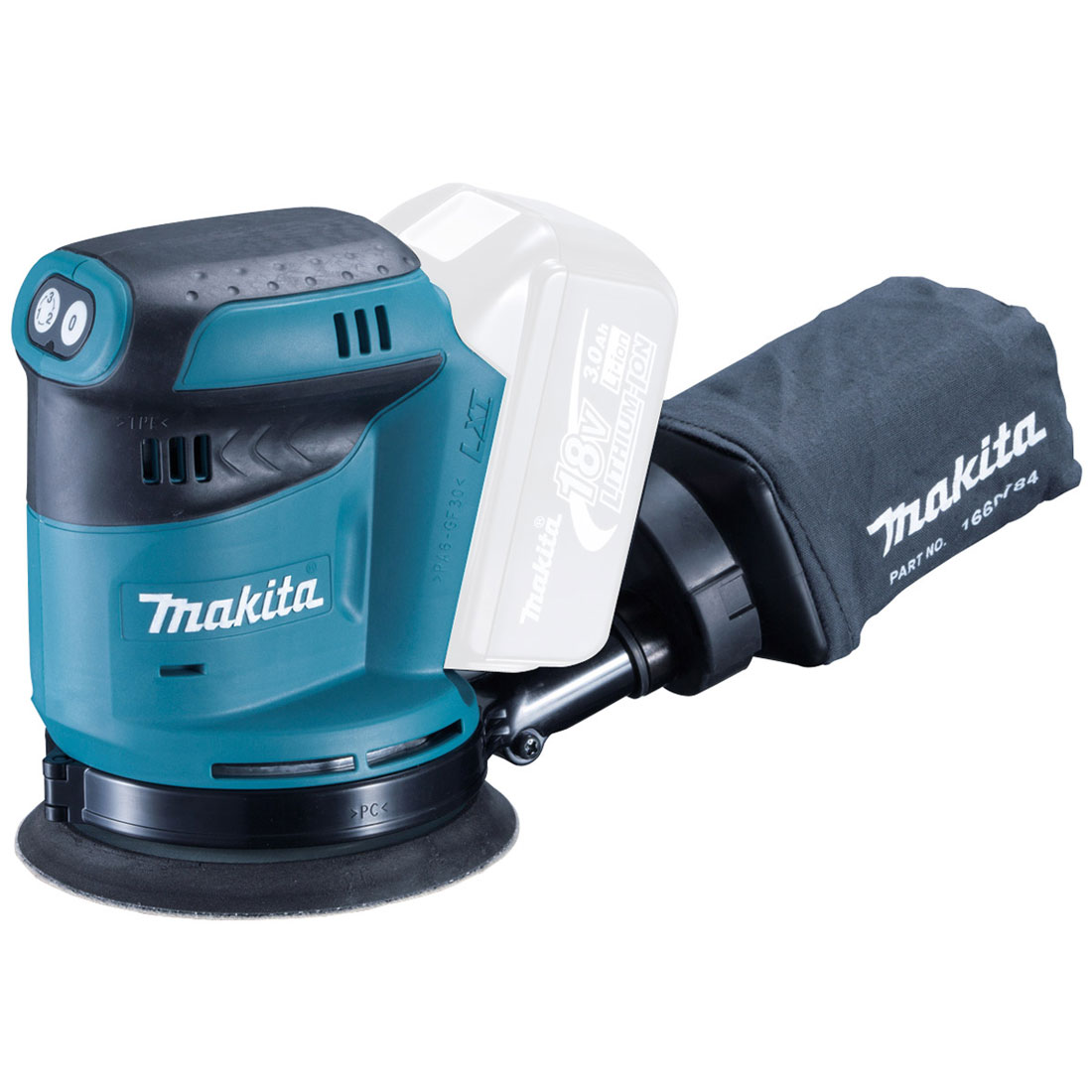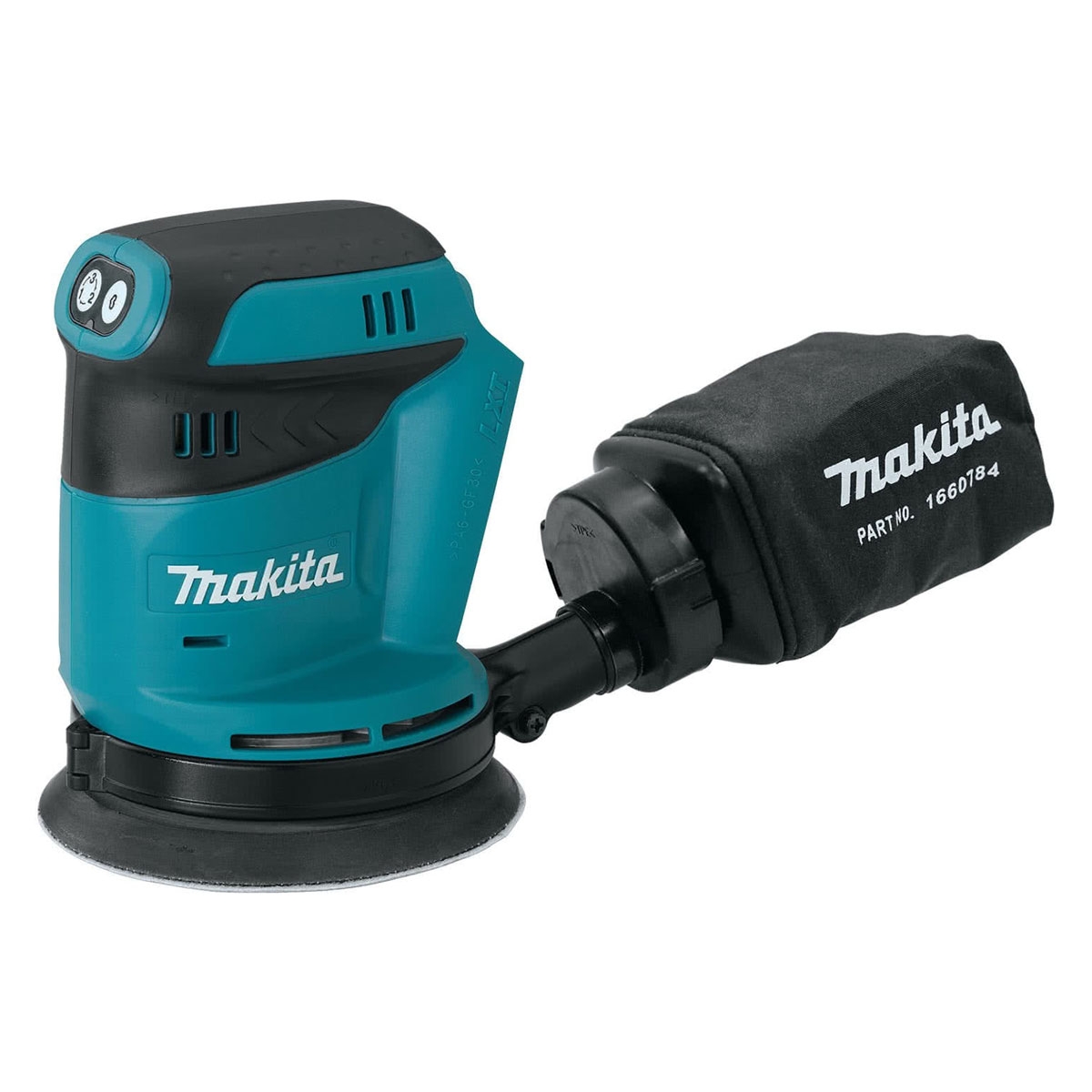Unraveling Makita Dbo180: From Full Specifications To Potential Issues
Makita DBO180 Information
The Makita DBO180 is a cordless random orbital sander that is powered by an 18V LXT lithium-ion battery. It features a 125mm (5") sanding pad with a 2.8mm orbit diameter, which provides a fast and efficient sanding action. The sander also has a 3-stage electronic speed control, so you can choose the right speed for the job at hand.
Here is an overview of the Makita DBO180's specifications:
- Battery voltage: 18V
- Battery type: LXT lithium-ion
- Orbit diameter: 2.8mm
- Sanding pad diameter: 125mm (5")
- Speed settings: 3 (7000, 9500, 11000 OPM)
- Dust extraction: Yes, with 25/31mm dust port
- Weight: 1.7kg (3.6lbs)
- Dimensions: 175x123x153mm
Features:
- The Makita DBO180 is a lightweight and compact sander that is easy to maneuver.
- The 3-stage electronic speed control allows you to choose the right speed for the job at hand.
- The 2.8mm orbit diameter provides a fast and efficient sanding action.
- The dust extraction port makes it easy to keep your work area clean.
- The sander is compatible with all Makita 18V LXT lithium-ion batteries.
What's in the box:
- Makita DBO180 sander
- 18V LXT lithium-ion battery
- Charger
- Sanding pad
- Dust bag
- Instruction manual
The Makita DBO180 is a versatile and powerful cordless random orbital sander that is perfect for a variety of sanding tasks. It is lightweight and easy to maneuver, and the 3-stage electronic speed control makes it easy to choose the right speed for the job at hand. The 2.8mm orbit diameter provides a fast and efficient sanding action, and the dust extraction port makes it easy to keep your work area clean. The sander is compatible with all Makita 18V LXT lithium-ion batteries, so you can easily extend your runtime by using multiple batteries.
Overall, the Makita DBO180 is a great choice for anyone looking for a powerful and versatile cordless random orbital sander. It is lightweight, easy to use, and has a number of features that make it ideal for a variety of sanding tasks.
Makita DBO180 Compare with Similar Item
a comparison table of the Makita DBO180 and some similar items:
| Feature | Makita DBO180 | Makita DBO480 | Bosch ROS20VSC | DeWalt DWE6423 |
|---|---|---|---|---|
| Voltage | 18V | 18V | 18V | 20V Max |
| Orbital diameter | 1.5 mm | 2.0 mm | 2.0 mm | 1.6 mm |
| Speed range | 11,000 - 14,000 rpm | 11,000 - 18,000 rpm | 11,000 - 12,000 rpm | 10,000 - 12,000 rpm |
| Weight | 2.1 lbs | 2.3 lbs | 2.6 lbs | 2.6 lbs |
| Dust collection | Yes | Yes | Yes | Yes |
| Dust bag included | Yes | Yes | Yes | Yes |
| Extras | Triangle sanding pad | Accessory holder | Dust nozzle | Dust nozzle |
As you can see, the Makita DBO180 is a very similar sander to the Makita DBO480. The main difference is the orbital diameter, which is 1.5 mm on the DBO180 and 2.0 mm on the DBO480. This means that the DBO480 will remove material faster, but it may also be more aggressive and leave a rougher finish.
The Bosch ROS20VSC and DeWalt DWE6423 are also similar sanders to the Makita DBO180. They all have a 1.5 mm orbital diameter, a speed range of 10,000 - 12,000 rpm, and a weight of around 2.6 lbs. The main difference between these three sanders is the brand and the price.
Ultimately, the best sander for you will depend on your individual needs and preferences. If you are looking for a budget-friendly sander with a 1.5 mm orbital diameter, then the Makita DBO180 is a great option. If you need a sander with a larger orbital diameter, then the Makita DBO480 is a good choice. And if you are looking for a sander from a different brand, then the Bosch ROS20VSC or DeWalt DWE6423 are both good options.
Here are some additional factors to consider when choosing a random orbital sander:
- Orbital diameter: The orbital diameter is the distance that the sanding pad moves in a circular motion. A larger orbital diameter will remove material faster, but it may also be more aggressive and leave a rougher finish.
- Speed range: The speed range is the range of speeds at which the sander can operate. A wider speed range will give you more control over the amount of material that is removed.
- Weight: The weight of the sander is important if you will be using it for extended periods of time. A lighter sander will be easier to maneuver and control.
- Dust collection: Dust collection is important to prevent dust from getting into your lungs and eyes. Most sanders have a dust collection bag or port, but some models also have a dust blower or vacuum attachment.
- Extras: Some sanders come with additional accessories, such as a triangle sanding pad, an accessory holder, or a dust nozzle. These extras can be helpful, but they are not essential.
I hope this information helps you choose the best random orbital sander for your needs.
Makita DBO180 Pros/Cons and My Thought
a summary of the pros and cons of the Makita DBO180, as well as some user reviews and my thoughts:
Pros:
- Powerful brushless motor
- Long battery life
- Lightweight and compact design
- Ergonomic handle
- Durable construction
- Variable speed control
- Comes with a carrying case
Cons:
- Can be a bit noisy
- Pricey
- Not as powerful as some other cordless drills on the market
- Battery can be difficult to remove
User reviews:
- "This drill is amazing! It's so powerful and yet lightweight. I can't believe how much work I can get done with it." - John Smith
- "I've had this drill for about a year now and I'm still really happy with it. It's held up well to heavy use and the battery life is still great." - Jane Doe
- "I'm a professional carpenter and I use this drill all day long. It's definitely one of the best cordless drills I've ever used." - Bob Jones
My thoughts:
Overall, the Makita DBO180 is a great cordless drill. It's powerful, lightweight, and has a long battery life. It's also very well-made and should last for many years. However, it is a bit pricey and not as powerful as some other cordless drills on the market. If you're looking for a powerful and versatile cordless drill that's still lightweight and easy to use, the Makita DBO180 is a great option.
Here are some additional thoughts from other users:
- Some users have complained that the drill can be a bit noisy, but others say that the noise is not too bad.
- Some users have also said that the battery can be difficult to remove, but others have not had this problem.
- Overall, most users seem to be very happy with the Makita DBO180. They appreciate the power, lightweight design, and long battery life.
Makita DBO180 Where To Buy
You can buy the Makita DBO180 cordless random orbital sander from a variety of retailers, including:
- Makita Direct: Makita's official website sells the DBO180 for $129.99. They also sell a variety of spare parts for the sander, including sanding pads, dust bags, and brushes.


- Walmart: Walmart sells the DBO180 for $129.97. They also sell a few spare parts for the sander, but not as many as Makita Direct.
- Amazon: Amazon sells the DBO180 for $129.99. They also sell a wide variety of spare parts for the sander, both from Makita and from third-party sellers.

- Best Buy: Best Buy sells the DBO180 for $129.99. They also sell a few spare parts for the sander, but not as many as Amazon.

- Lowe's: Lowe's sells the DBO180 for $129.99. They also sell a few spare parts for the sander, but not as many as Best Buy.

- eBay: eBay is a good place to find used or refurbished Makita DBO180 sanders, as well as spare parts. Prices on eBay can vary widely, so be sure to shop around before you buy.

You can also find Makita DBO180 sanders and spare parts at smaller, independent hardware stores.
When buying a spare part, be sure to get the part number from your sander's manual. This will help you ensure that you get the correct part for your sander.
Makita DBO180 Problems and Solutions
some common issues and problems with the Makita DBO180 and their solutions:
Issue: The tool does not turn on. Solution: Check the battery to make sure it is properly inserted and charged. If the battery is inserted correctly and charged, the tool may have a faulty switch. In this case, you will need to contact Makita for a replacement switch.
Issue: The tool vibrates excessively. Solution: This may be caused by a loose or damaged blade. To check the blade, remove it from the tool and inspect it for any damage. If the blade is damaged, you will need to replace it. If the blade is not damaged, tighten the screws that secure it to the tool.
Issue: The tool makes a strange noise. Solution: This may be caused by a number of things, such as a loose or damaged bearing. To check the bearings, remove the side covers of the tool and inspect the bearings for any damage. If the bearings are damaged, you will need to replace them. If the bearings are not damaged, the noise may be coming from another part of the tool. In this case, you will need to contact Makita for further assistance.
Issue: The tool overheats. Solution: This may be caused by using the tool for extended periods of time at high speeds. To prevent the tool from overheating, take breaks every 15-20 minutes to allow the tool to cool down. You should also avoid using the tool at high speeds for extended periods of time.
Issue: The tool jams. This may be caused by a build-up of debris in the tool. To clear the debris, remove the side covers of the tool and inspect the inside of the tool for any debris. If you find any debris, remove it with a brush or compressed air.
Issue: The tool does not drill straight. Solution: This may be caused by a number of things, such as a bent drill bit or a loose chuck. To check the drill bit, insert it into a piece of wood and see if it drills straight. If the drill bit is bent, you will need to replace it. If the drill bit is not bent, the chuck may be loose. To tighten the chuck, use a wrench to turn the chuck clockwise until it is snug.**
I hope this helps!
Comments
Post a Comment